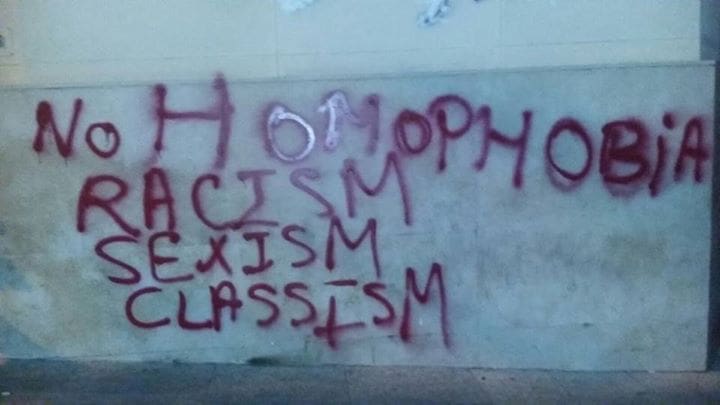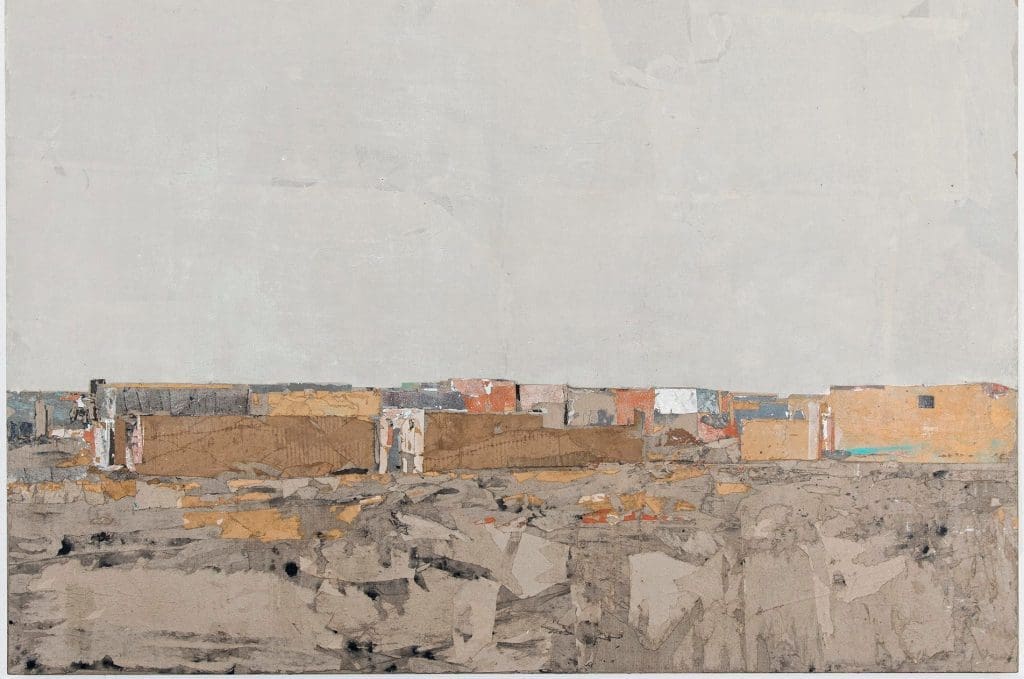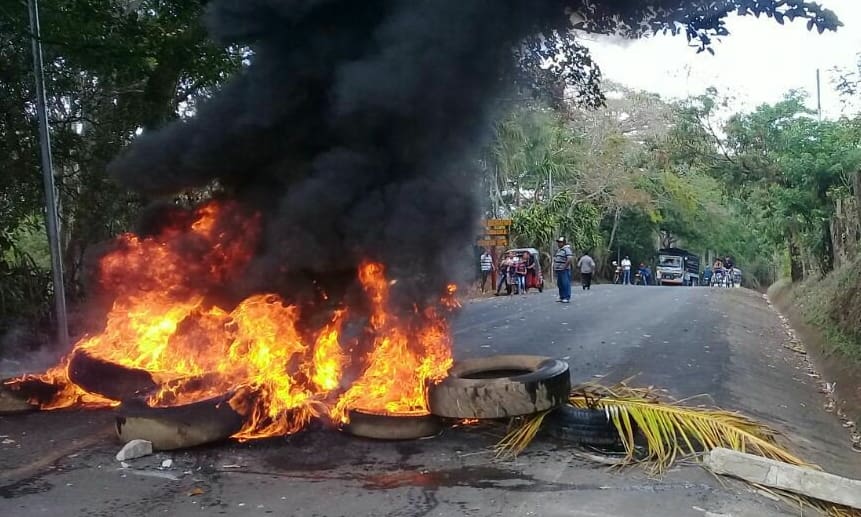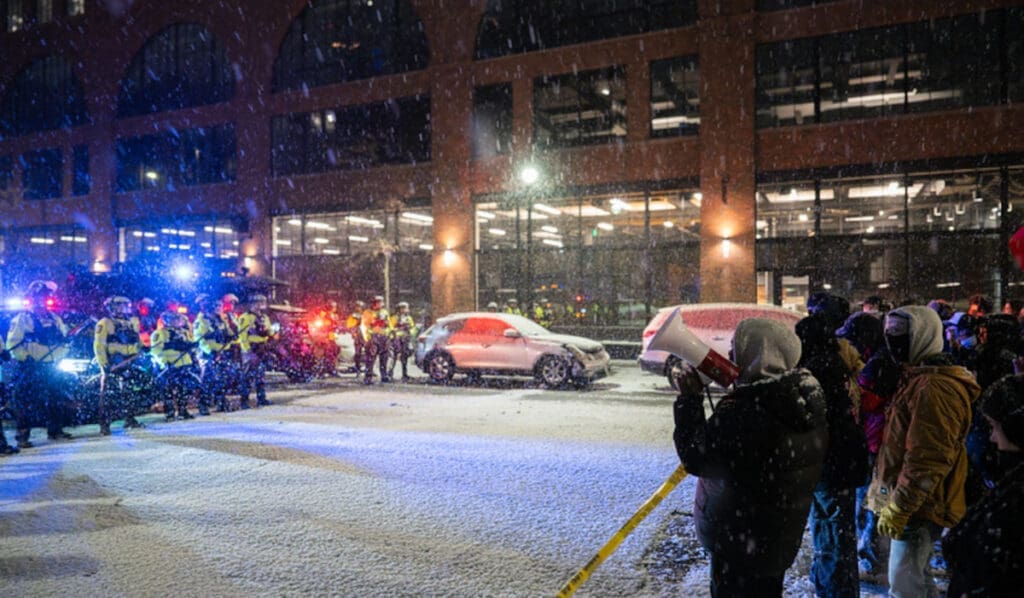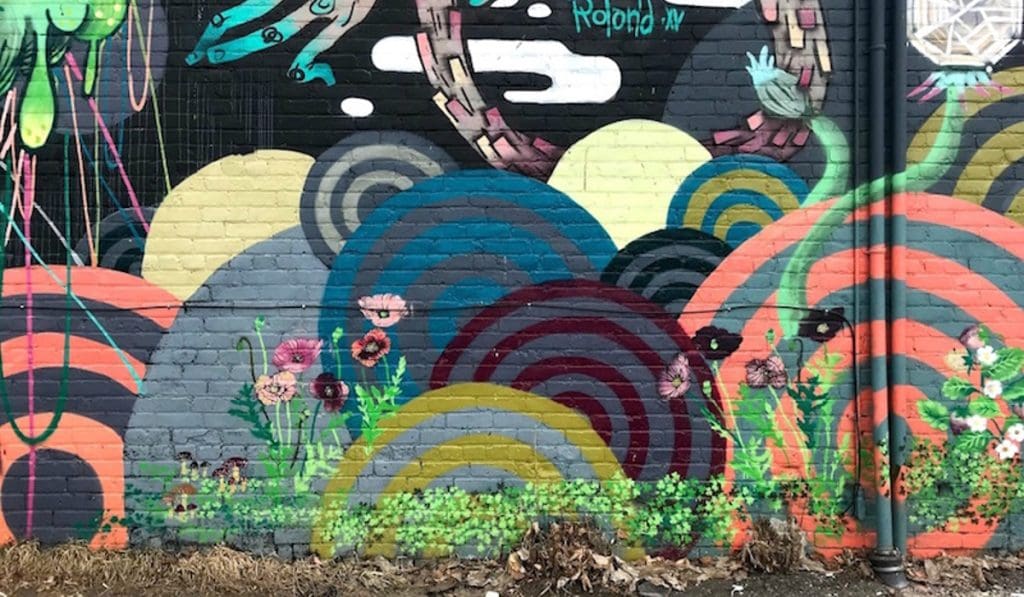Is there a need for feminism in the current protests in Lebanon?
by Lamia Moghnie and Stephanie Gaspais for Sawt al’ Niswa
(original post)
“A feminist reading can shed a light on relations and dynamics of power; on violence and discrimination from the state. This analysis is not secondary or parallel to other demands, but is at the heart of understanding the patriarchal practices of the violent state.”
In the past week, we met on several occasions as feminists, to discuss our role in the current series of protests in Lebanon. We started joining the protests since Saturday 22 August as individuals, like many other people. We joined the crowded streets of Beirut, melting with the wider demands for basic rights—just female bodies in the streets.
We were confused. We reflected on our participation in these protests and on whether there is a need for a feminist discourse and impact within the social and political movements that were starting to form, or whether feminism should be placed aside for now, as a secondary concern to the more urgent demands for basic needs such as electricity, water and garbage collection. We decided to go to the protest square together, as feminists, and to hold banners that were not necessarily asking for specific demands, but rather reflecting topics and issues we wanted to discuss with the protestors. We felt that these topics were omitted from the more general demands:
Justice for women. Down with the patriarchal murderous regime #Patriarchy_Kills_Me
The Kafala system is also garbage. Let’s not forget about the rights of foreign workers #SocialJustice
One Eye on Ain el Helweh, and One eye on Riad el Solh #solidarity
Leave the wall and take the parliament and the government down
We stood in the square and held our banners. Some protesters got upset, and some agreed with us.
A young man came to us and shouted: “So I am the problem then? Men are always the problem with you!” He left before we had the time to reply.
Another young man approached us and said:
“I like what you wrote. But don’t you feel that you are asking too much this way? What we have to do now is all focus on one demand…
For me, the main demand is elections. Everything else is secondary, and all these other things will come on their own once there is a new government.”
But what is the point of elections if they will produce the same sectarian and violent regime, the same state that enforces and encourages a kafala system? The same patriarchal form of governance?
The more we became visible as feminists in the square, the more we felt it was crucial to discuss our role: is there a need for feminism in the current wave of protests in Lebanon?
During the demonstration on 29 August, a friend read our banner on patriarchy, sexual harassment and the racism of the state:
Your Patriarchy and your racism kill me
#Bassil_and Machnouq_are_unapologetic_ harrassers
and said:
“But in Lebanon the protests are good compared to Egypt. So far you can go down as a woman and no one sexually harasses you. In Egypt, the situation was catastrophic.”
Diana Moukalled also wrote an article in Asharq Alawsat (an English version can be found here) about women protesters in Lebanon, where she responded to Arab and local stereotypical and sexualized comments made against Lebanese women protesters:
“Yes, Lebanon enjoys a clear margin of freedom compared to other Arab societies whose women, who played a very important role during their protests, were killed, tortured or humiliated, as evidenced in Egypt and Syria. These women’s images have been distorted. In addition to the fact they’ve also suffered from sexual harassment and even mob sexual assaults. However, Lebanon’s protests did not witness assaults. Protest squares in Lebanon are not considered dangerous to women and are actually serious arenas for women and other Lebanese people to express their opinions. It’s true that in Lebanon we are influenced by laws that discriminate against women, a patriarchal culture that at times tends to be shallow, and a rise of an extremism wave. But in Lebanon, strong energy and freedom still persists over here, which have been manifested in our protests and should not be disparaged but more reasons to celebrate, unite and develop.”
We take what Diana Moukalled and our friend said seriously, and ask again: Is there, then, a need for a feminist discourse and work within the current protests in Lebanon? Or are female protesters in Lebanon in a “good” situation relative to other countries, and that should be enough? Is our furthest ambition and demand for Lebanese women to be able to protest in the streets without being sexually harassed or raped? Do we measure our participation and the space we have to formulate demands based on the number of female bodies in the square? And do all women protestors enjoy the same level of freedom and safety?
We can use feminism as a tool that reveals the different layers of harassment, and that makes visible how the protest square limits and reshapes women’s participation and voices; which women are allowed to protest and which women are omitted or made invisible and unwelcomed in the streets.
And as Moukalled said at the end of her article, women’s participation in the protests needs to be developed and not devalued. And this is what we aim to do with our recurrent questioning:
Who are the female protesters in Lebanon? Not all of them enjoy the same form of freedom or are given the same space to express themselves, as Moukalled described, for the simple reason that not all protesters are Lebanese women. And it’s a fact we need to recognize since we share this geographical space called Lebanon with a great number of women from Syria, Palestine, Sri Lanka, India, Ethiopia, the Philippines, among others, who take the streets because they also have demands and because they are marginalized and exploited by the state at work and in the public and private spheres. The regime owes these women their rights as well.
Submission from a female protester to Sawt al’ Niswa (Facebook):
“I am going down because most of my interactions with the state’s institutions as a woman who is not Lebanese, who lives and works in Lebanon, have always ranged from racism to mockery to harassment to condescension, because there are 2 million or more non-Lebanese living in this country (most of them were born here and will die here) and they are breathing the same garbage and paying the same corruption taxes in addition to racism and exile. Because we have seen so much oppression from the police institutions, and it’s not the first time we deal with those pimps and their bullets, because my heart is filled with bitterness.
In Riad el Solh square, I saw two black women walking during the protest, trying to get rid of a long line of young men who were insulting and mocking them. This square does not provide a safe space for these women.”
There is no space for these women to express themselves, and many of them are scared to go down to the streets and raise their voices because they are more vulnerable to state violence and arrests. These women have a long history of violence and exploitation with the patriarchal state.
In addition to that, a lot of slogans and banners during the protests in Lebanon used women’s bodies and sexuality to defame the government:


We can again use feminism as a tool to read and analyze the street protests. These slogans and banners were widely shared and were very popular during the protest. When we spoke with the men who were holding them, they could not see any link between insulting women and defaming the state. Why are women’s bodies and sexualities used to attack the government? The slogans draw a clear line between the women who are welcomed on the square and the – insulted – women who are not respectable and who are used to denigrate the state. There is still no safe space for these women in the square.

Is there a need for a feminist discourse and action today within the protests in Lebanon? To answer this question, perhaps we need to answer another one: what can feminism offer today? Why feminism now?
Because a feminist reading can shed a light on relations and dynamics of power; on violence and discrimination from the state. This analysis is not secondary or parallel to other demands, but is at the heart of understanding the patriarchal practices of the violent state on different groups.
Because feminism contains tools that make visible the social/cultural violence against women in the streets, manifested in the masculinist slogans that are more an expression of state power than the demands of the protest.
Because feminism allows us to read better the practices of violence and harassment that some marginalized women face in Lebanon, among other minority groups.
Because feminism gives us the ability to better reflect the streets and the demands and rights of women, whether they are Lebanese or not.
Featured Image: Al Shaab Youreed. All other images: Sawt al’ Niswa

